News
Want to stay up to date with what’s happening at Hospice?
Subscribe to our newsletter:
Follow us on social media:
Recent News Articles

Annual Report & Financials
We are so thrilled to share our 2024-2025 Annual Report with you. Inside is a culmination of our year's achievements - from stories of impact, stats and reflections on the year's milestones. Please take the time read through, this is only possible thanks to your...
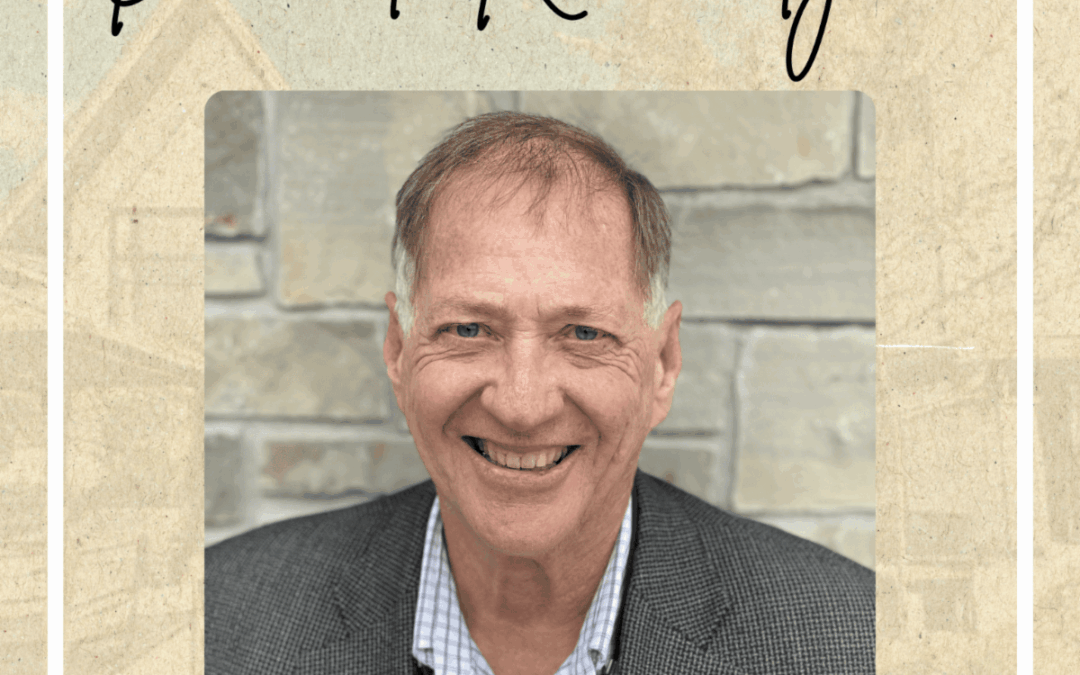
Annual General Meeting & Volunteer Appreciation
Hospice Peterborough Annual General Meeting & Volunteer Appreciation Thursday June 12, 2025 - 10 a.m. Jalynn Bennett Amphitheatre at Traill College 300 London St, Peterborough ON Registration is required: 705-742-4042 x227 or admin@hospicepeterborough.org * Proxy...
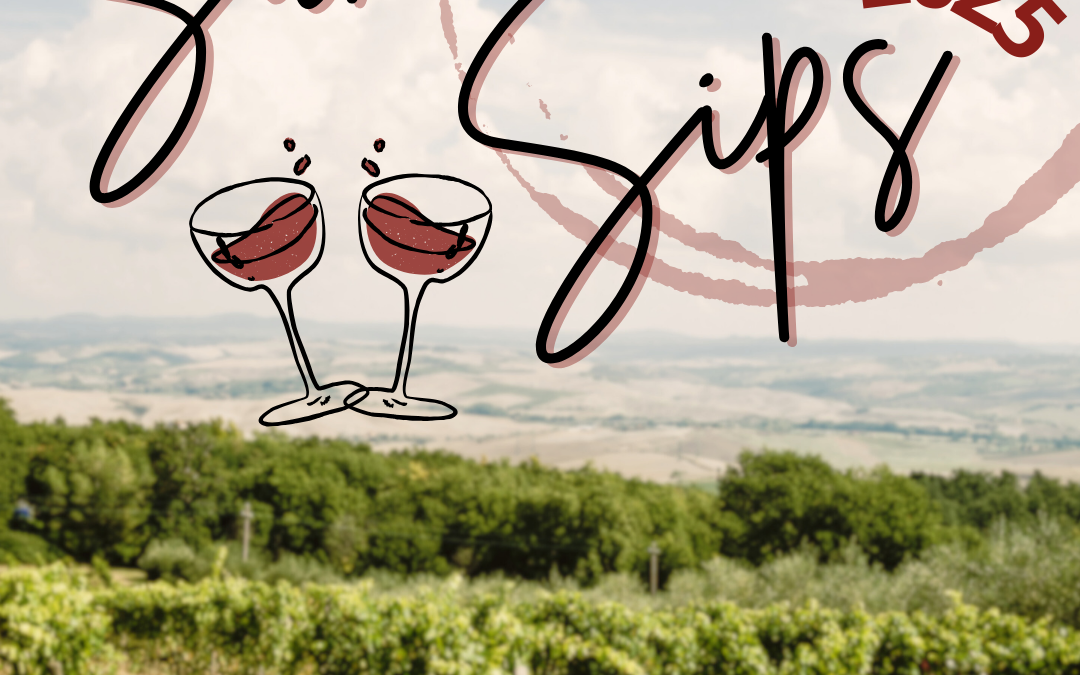
Summer Sips 2025!
SOLD OUT It's back again for another year! Join us at the popular event for an evening of connection, food, drink, and friends. Listen to amazing music as the sun sets at the beautiful Rolling Grape Vineyard. WHEN: Tuesday June 17th, 2025 - 6pm-9pmWHERE: Rolling Grape...

Stars for a Dark Night
December can be a long month when you are holding the memory of someone who has died. Join fellow community members, Hospice Peterborough, and the Peterborough Public Library to come together and fill the lobby wall with stars in memory of people who have died. ...
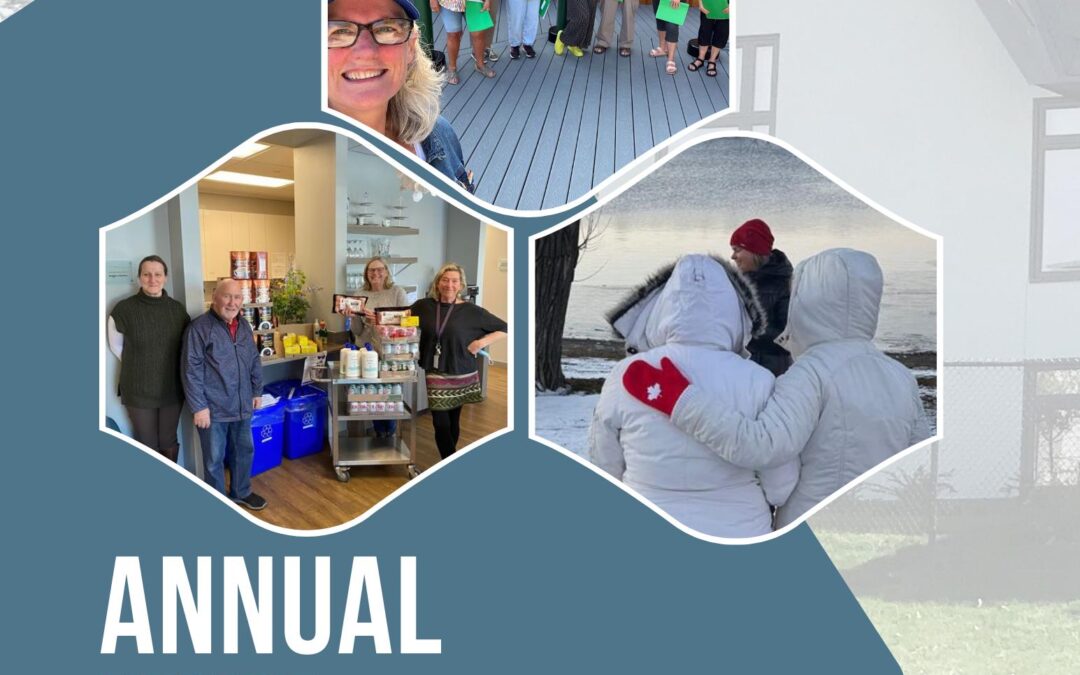
Celebrating a Year of Compassion: Our 2023-2024 Annual Report is here!
We are thrilled to announce the release of Hospice Peterborough's 2023-2024 Annual Report! Highlighting the organization's achievements, heartwarming stories, and significant milestones from the past year. Take a peek! You will...
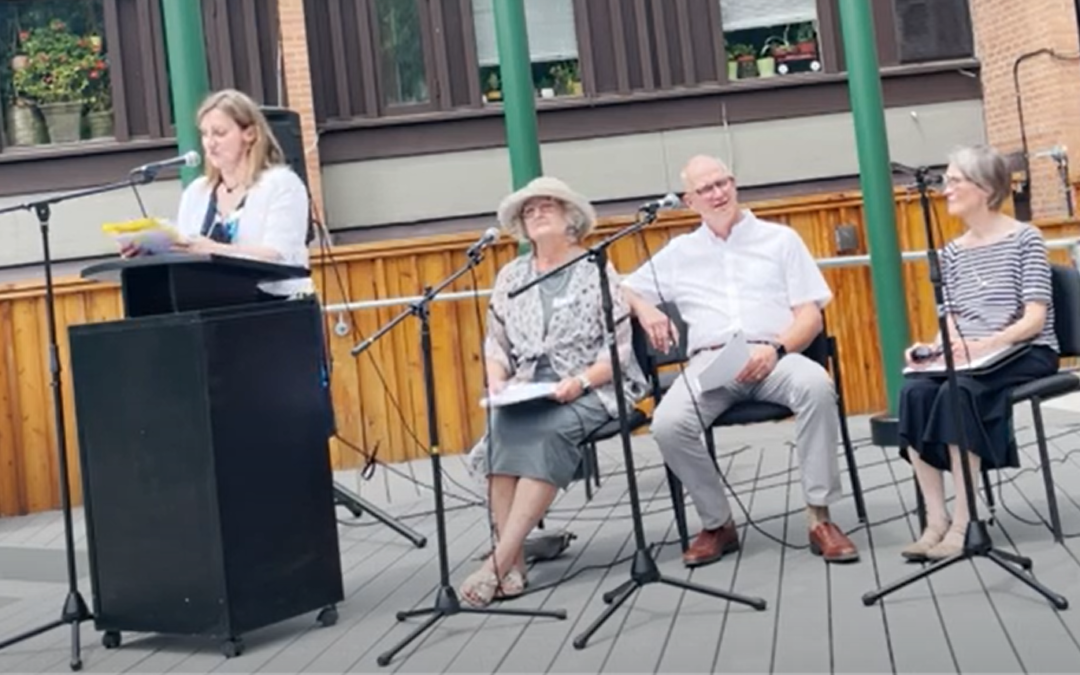
AGM Keynote Speaker Panel 2023-2024
On June 13, 2024 we held our 36th Annual General Meeting. We welcomed a panel of keynote speakers, Pat Knapp, Richard Johnston, Joan Higginson, and Linda Sunderland, all previous Executive Directors of Hospice Peterborough. The group shared their challenges and...
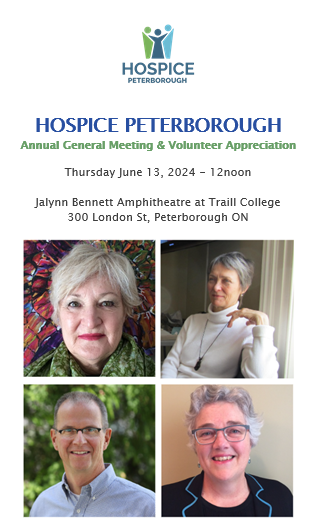
Hospice Peterborough Annual General Meeting – June 13, 2024
HOSPICE PETERBOROUGH Annual General Meeting & Volunteer Appreciation Thursday June 13, 2024 – 12noon Jalynn Bennett Amphitheatre at Traill College 300 London St, Peterborough ONWith Keynote Speakers: Pat Grant, Joan Higginson, Richard Johnston & Linda...
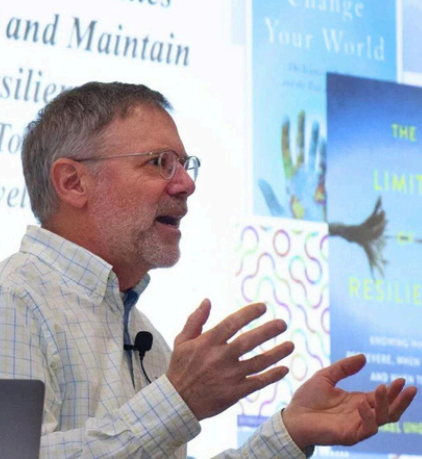
Second Annual Child & Youth Mental Health Symposium welcomes Dr. Michael Ungar as keynote speaker
Don shares reflections of his family's time using supports and services. The Herald Family Don (L), Jordon (top center) andMarnie (R) surround Jan. I write this on December 9th, 2022. It would have been her 78th birthday. She died at Hospice Peterborough on December...
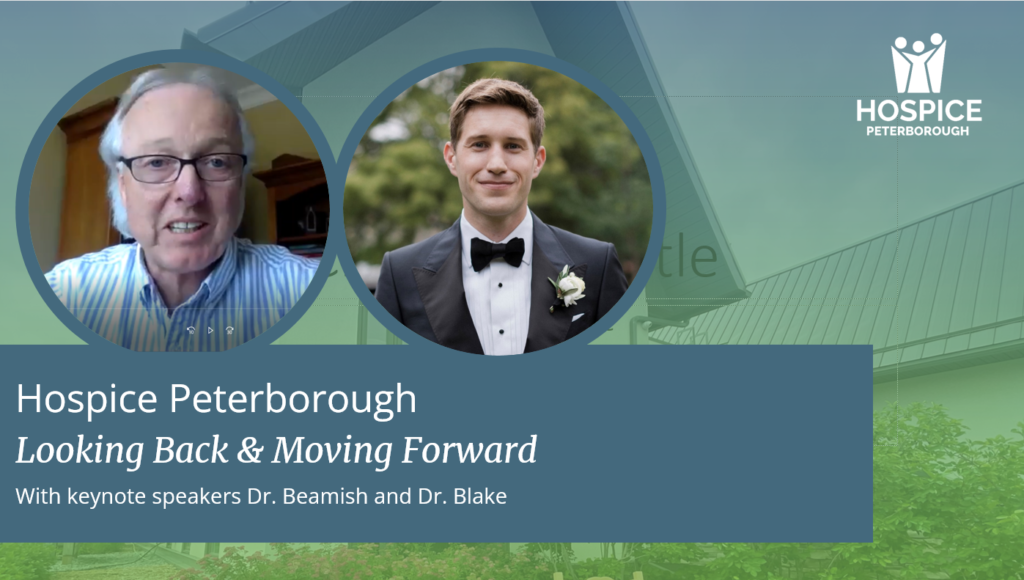
Watch our AGM
Missed our 2023 AGM? Watch it on Youtube now! Featuring keynote speakers Dr. Beamish and Dr. Blake on past, present and future of Hospice Peterborough. Watch it here.
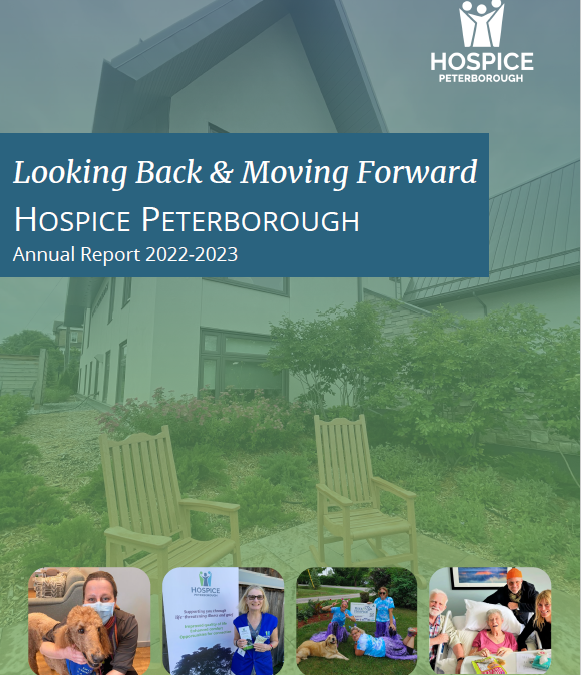
Celebrate the Successes of Our Previous Year!
Our 35th Annual General Meeting took place June 15th virtually. Keynote speakers Dr. John Beamish and Dr. Christopher Blake spoke on the past, present and future of Hospice Peterborough. We celebrated a year that wasn't without challenges but brought many moments of...
